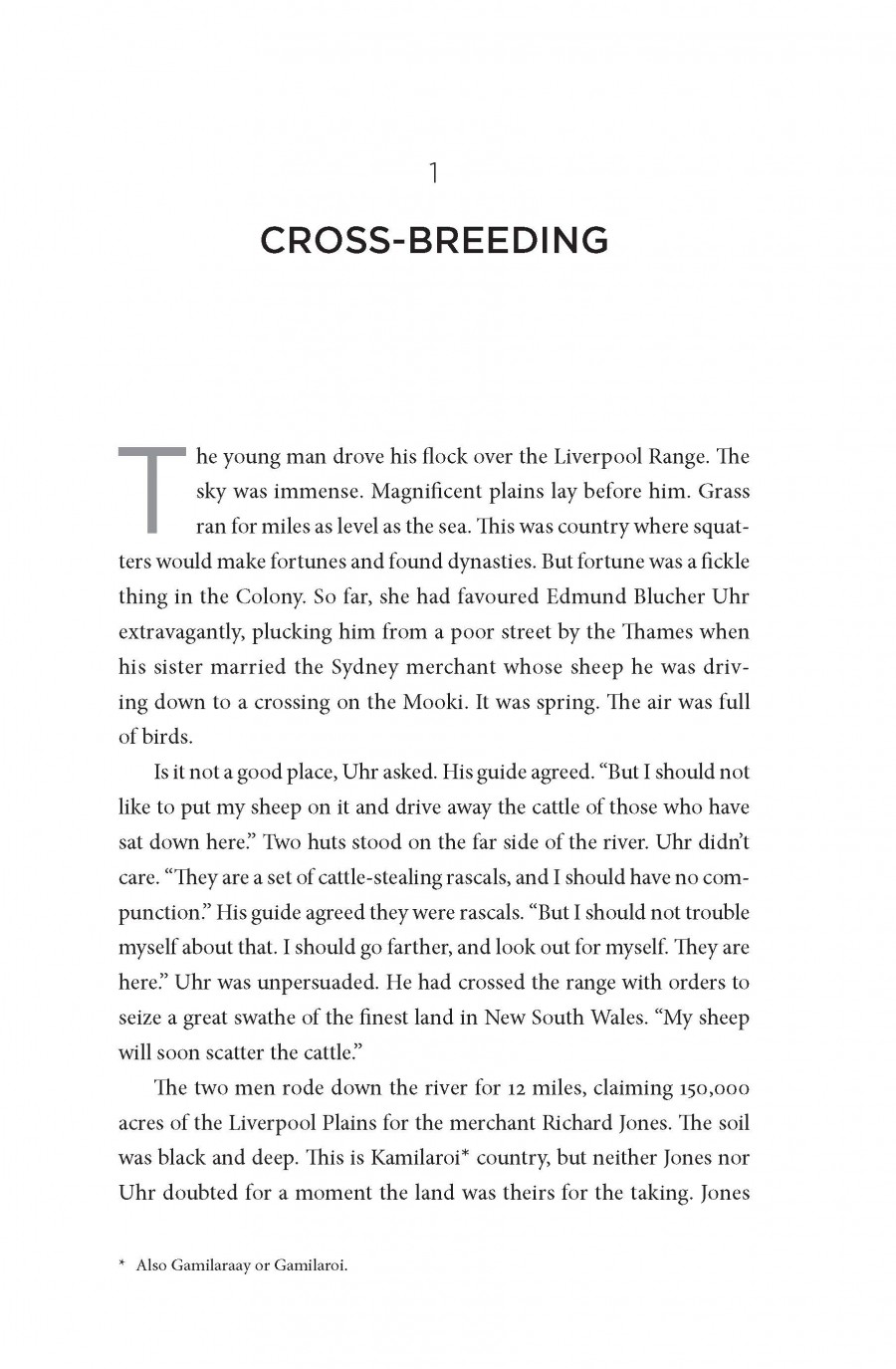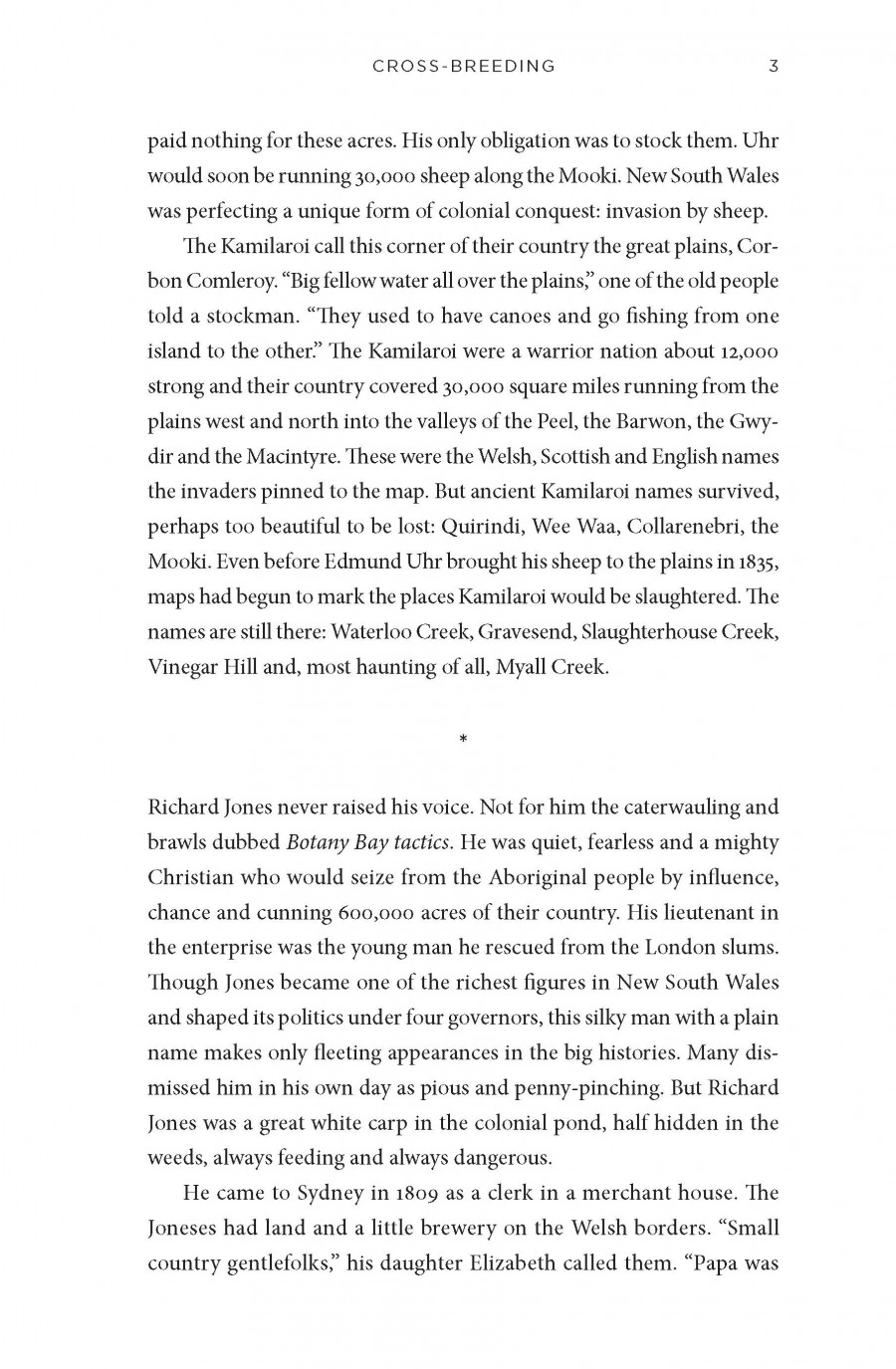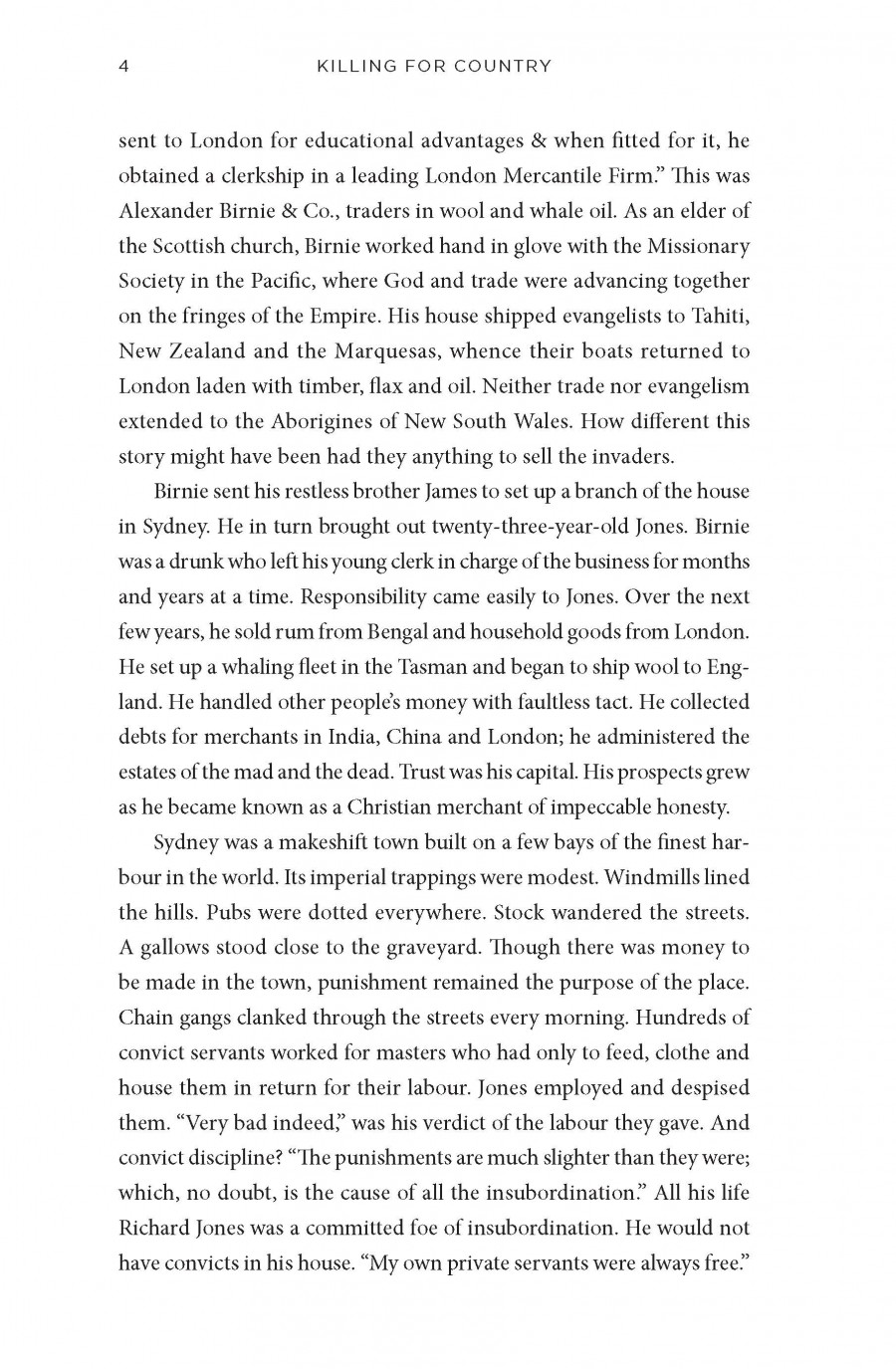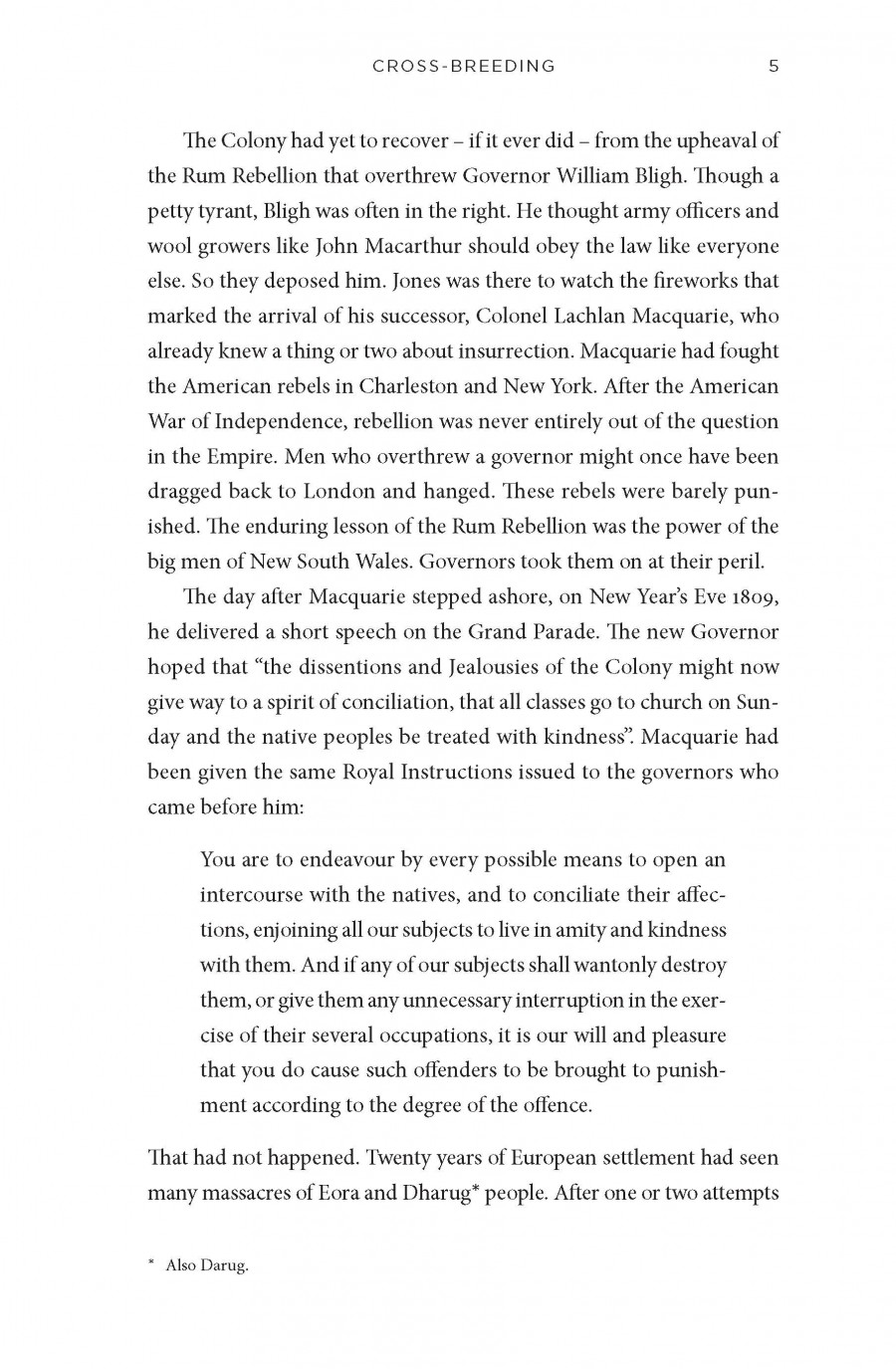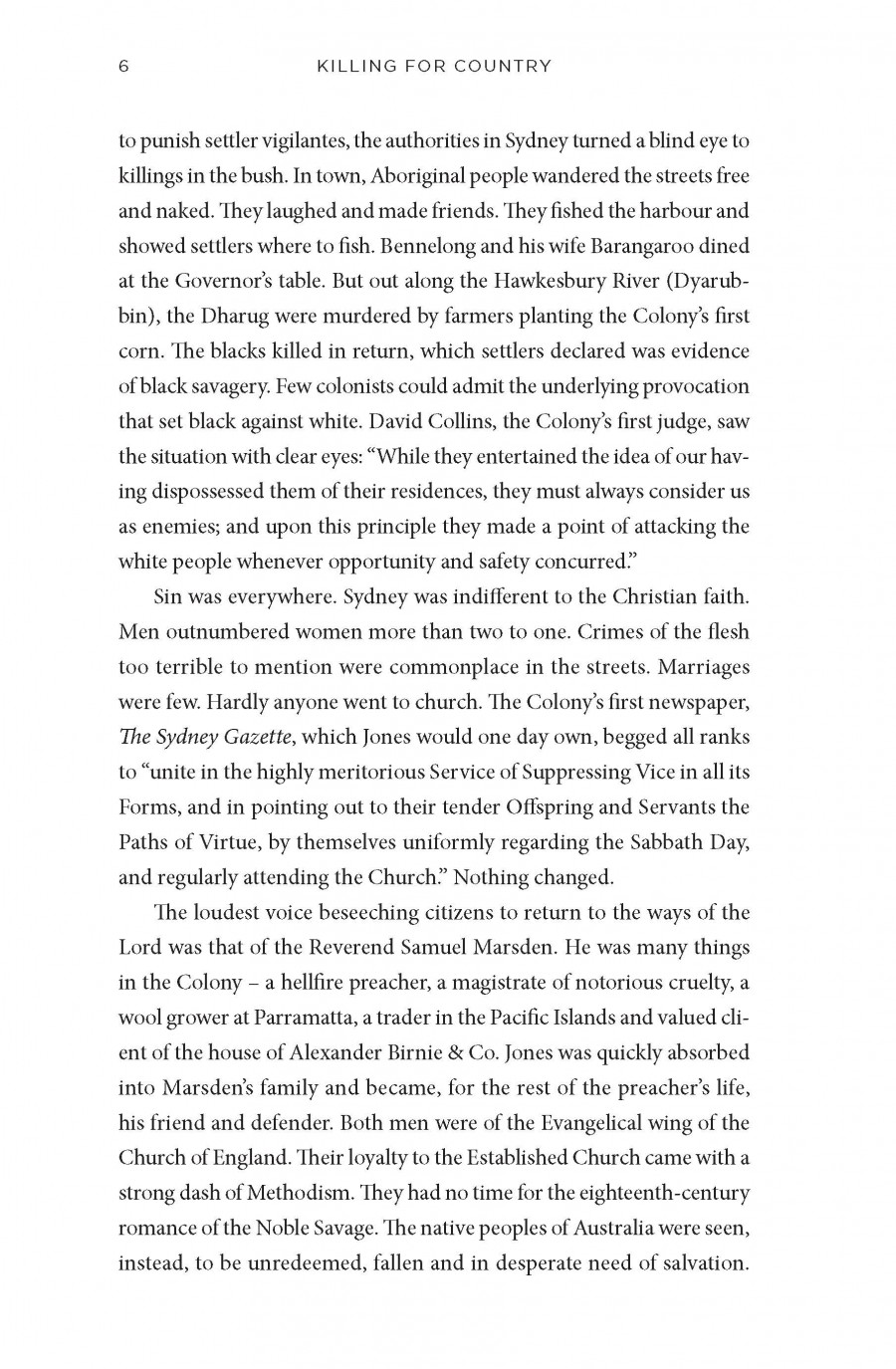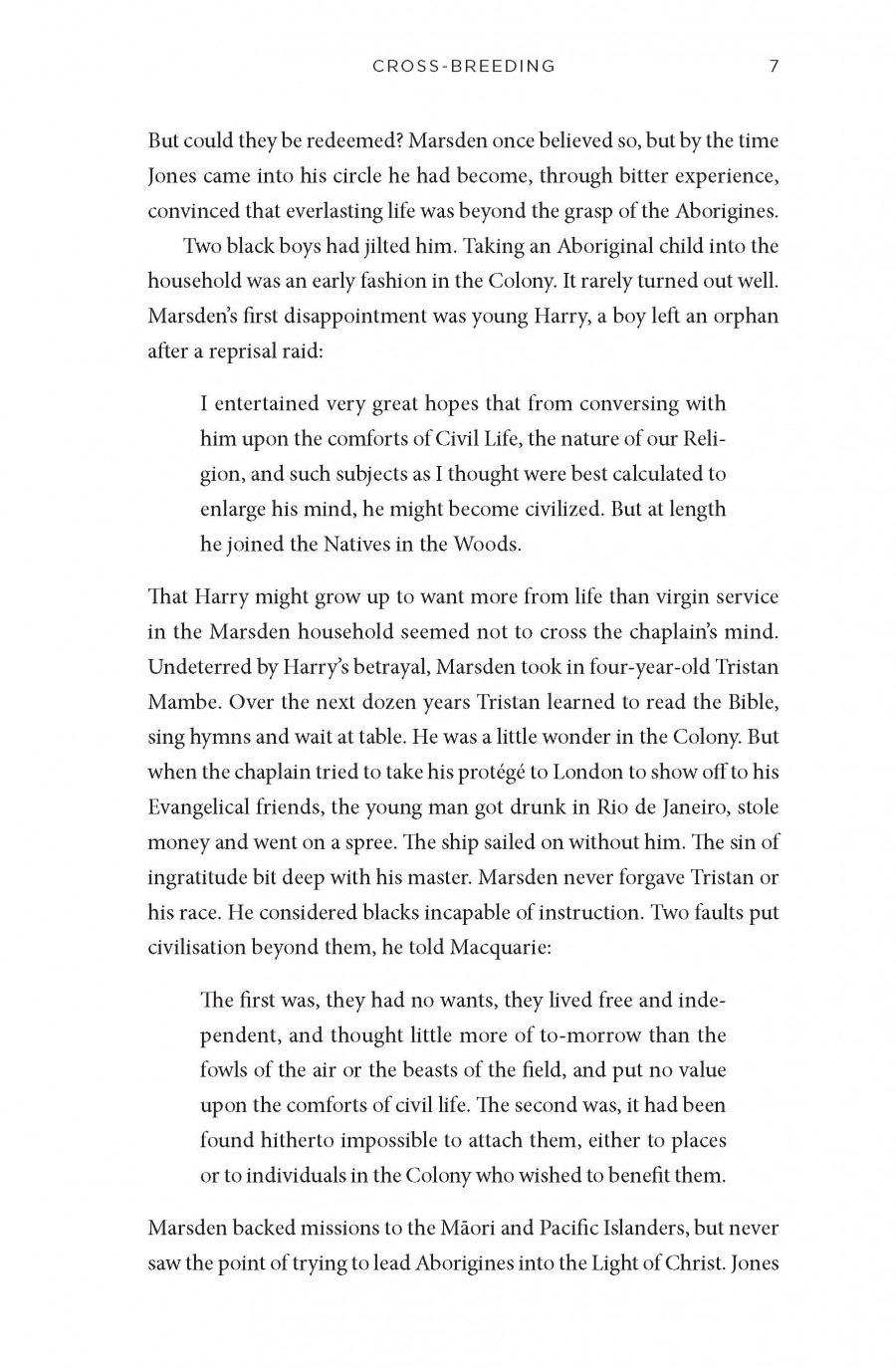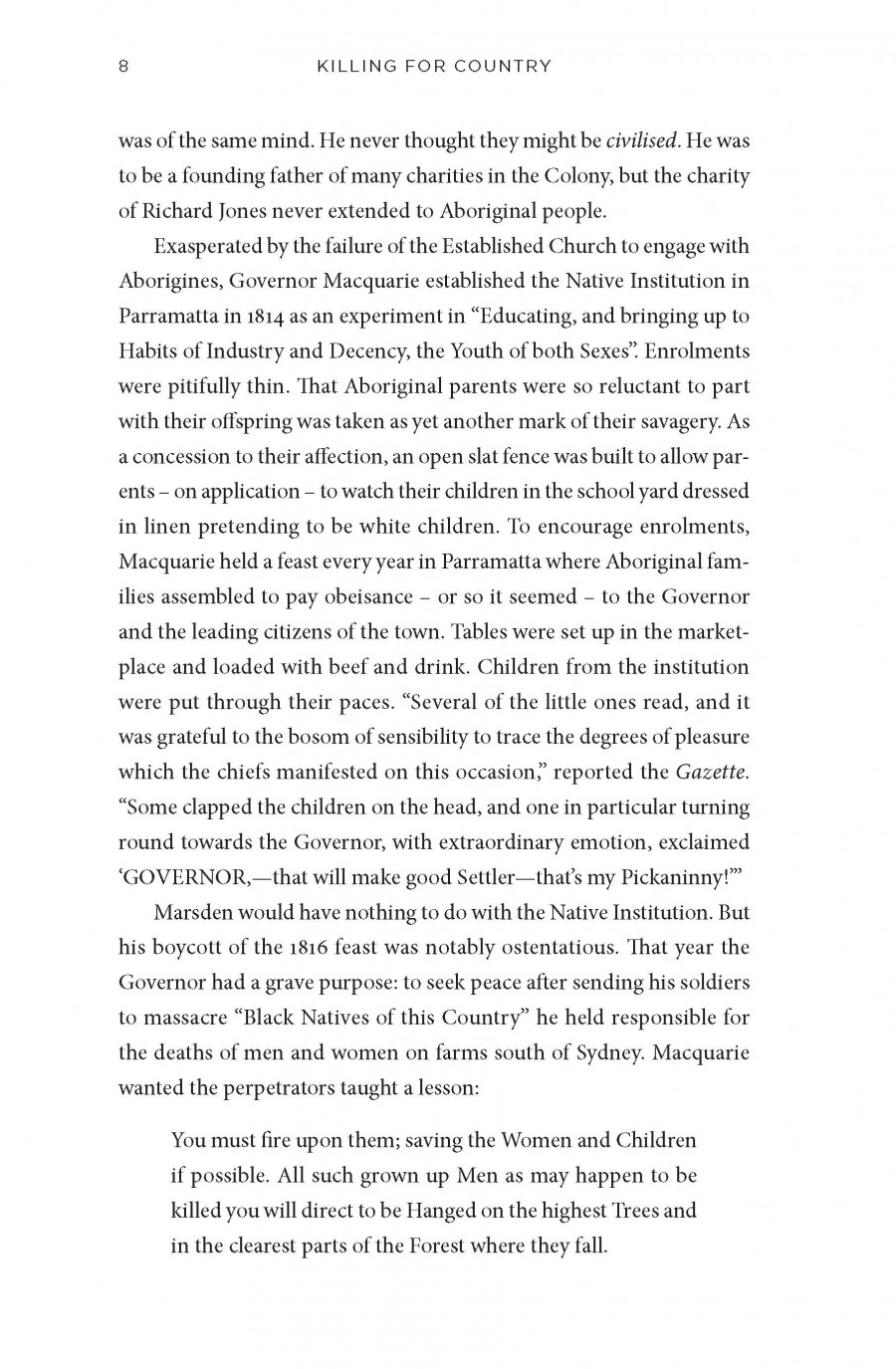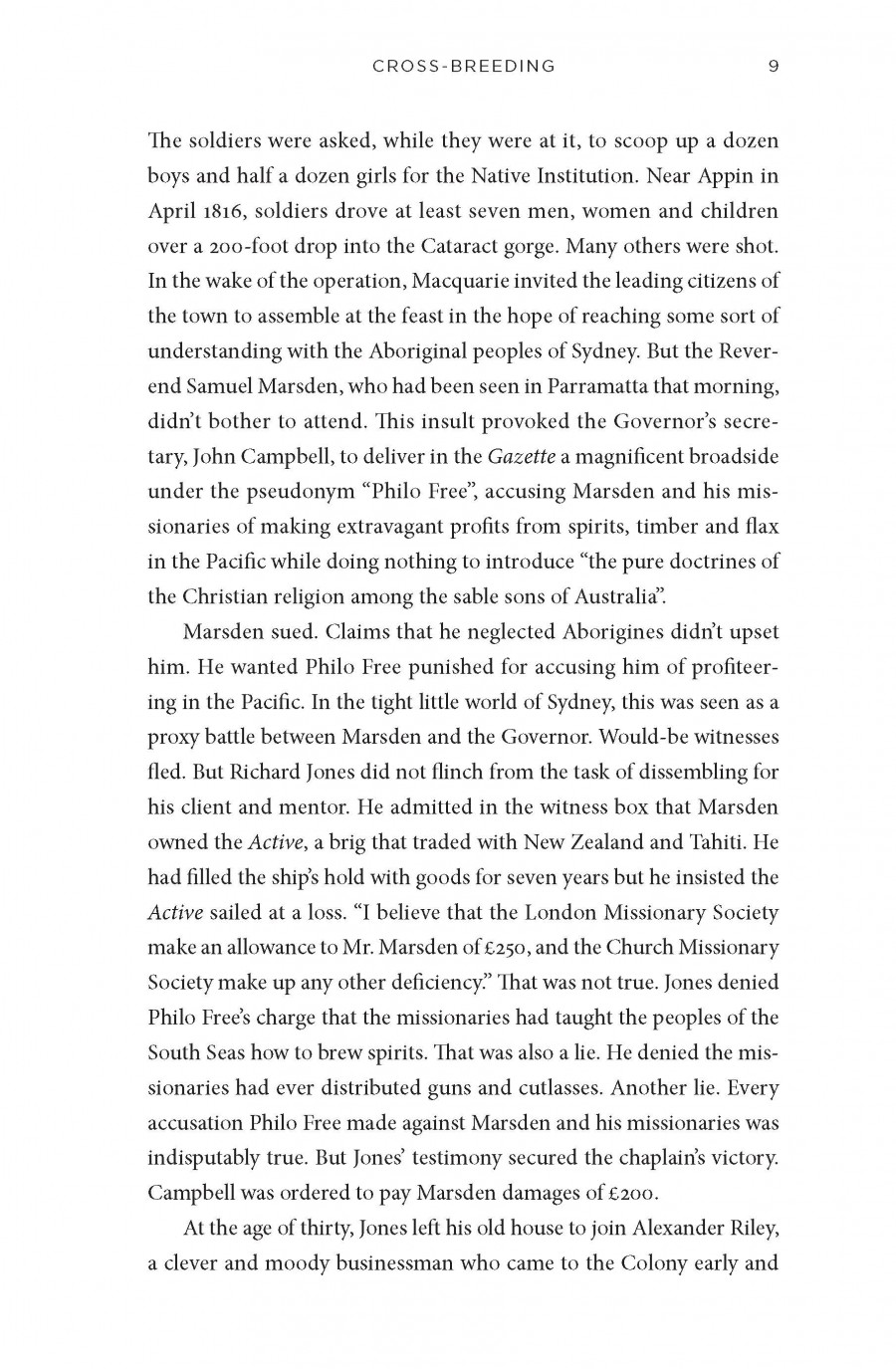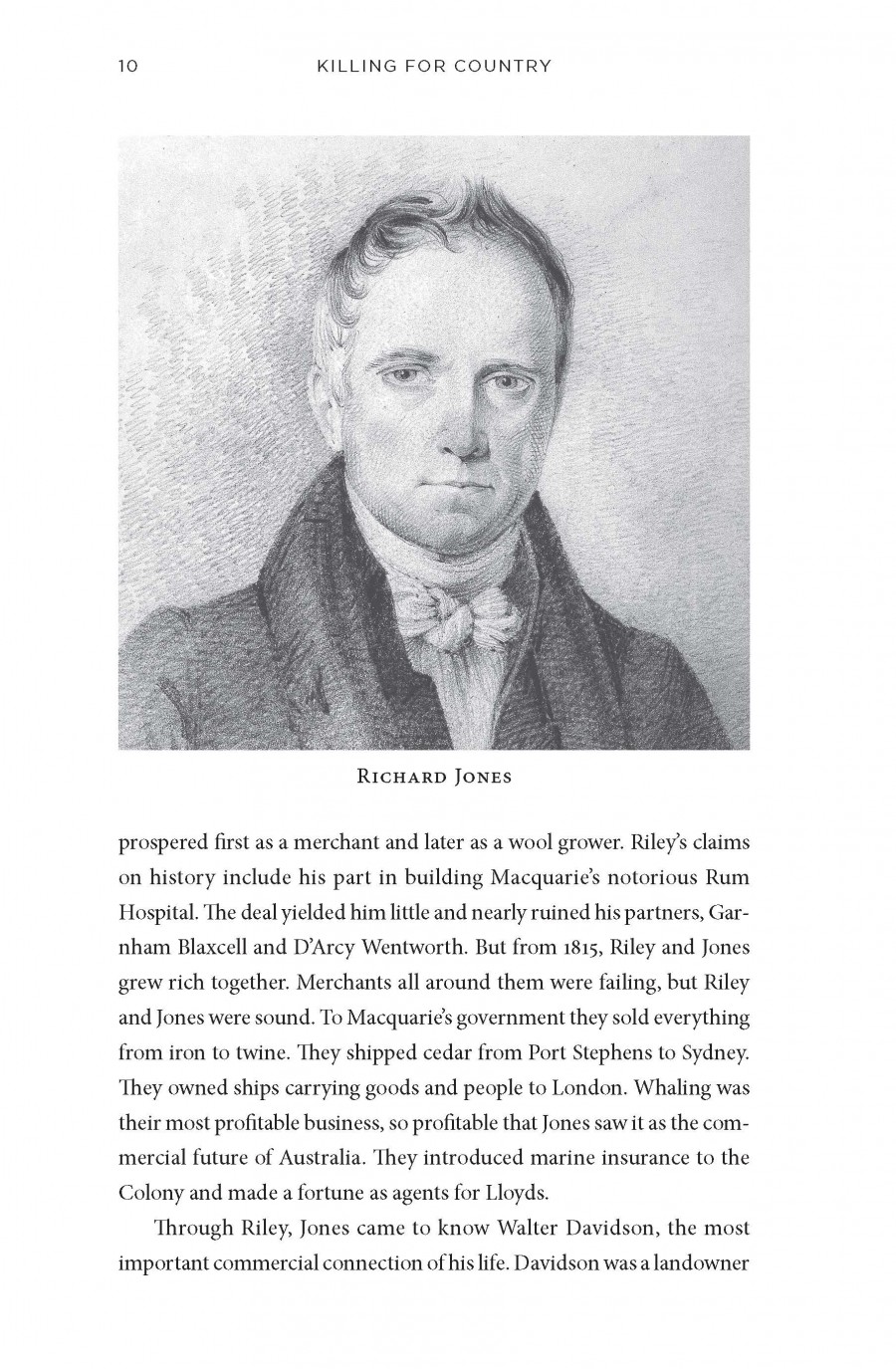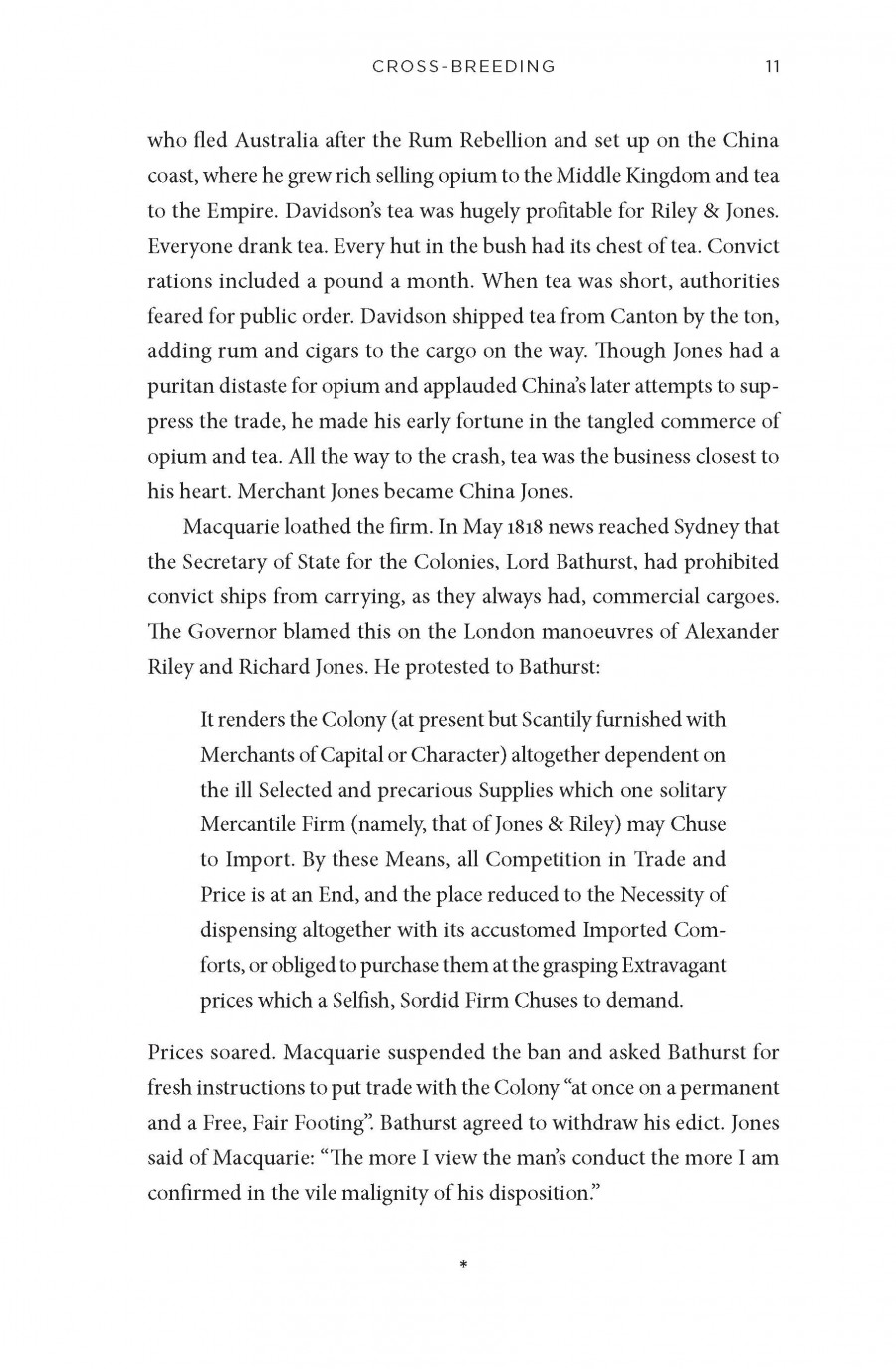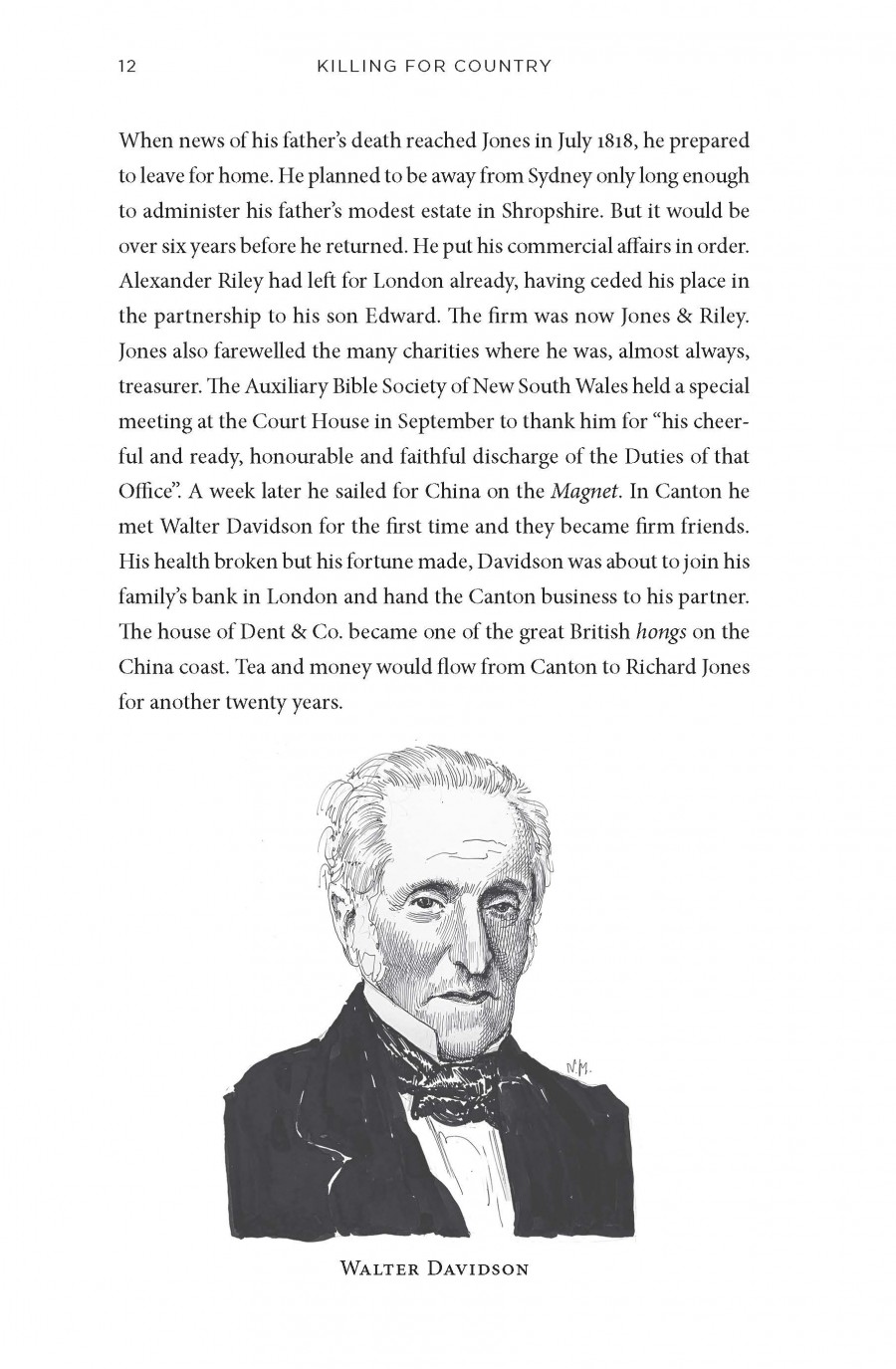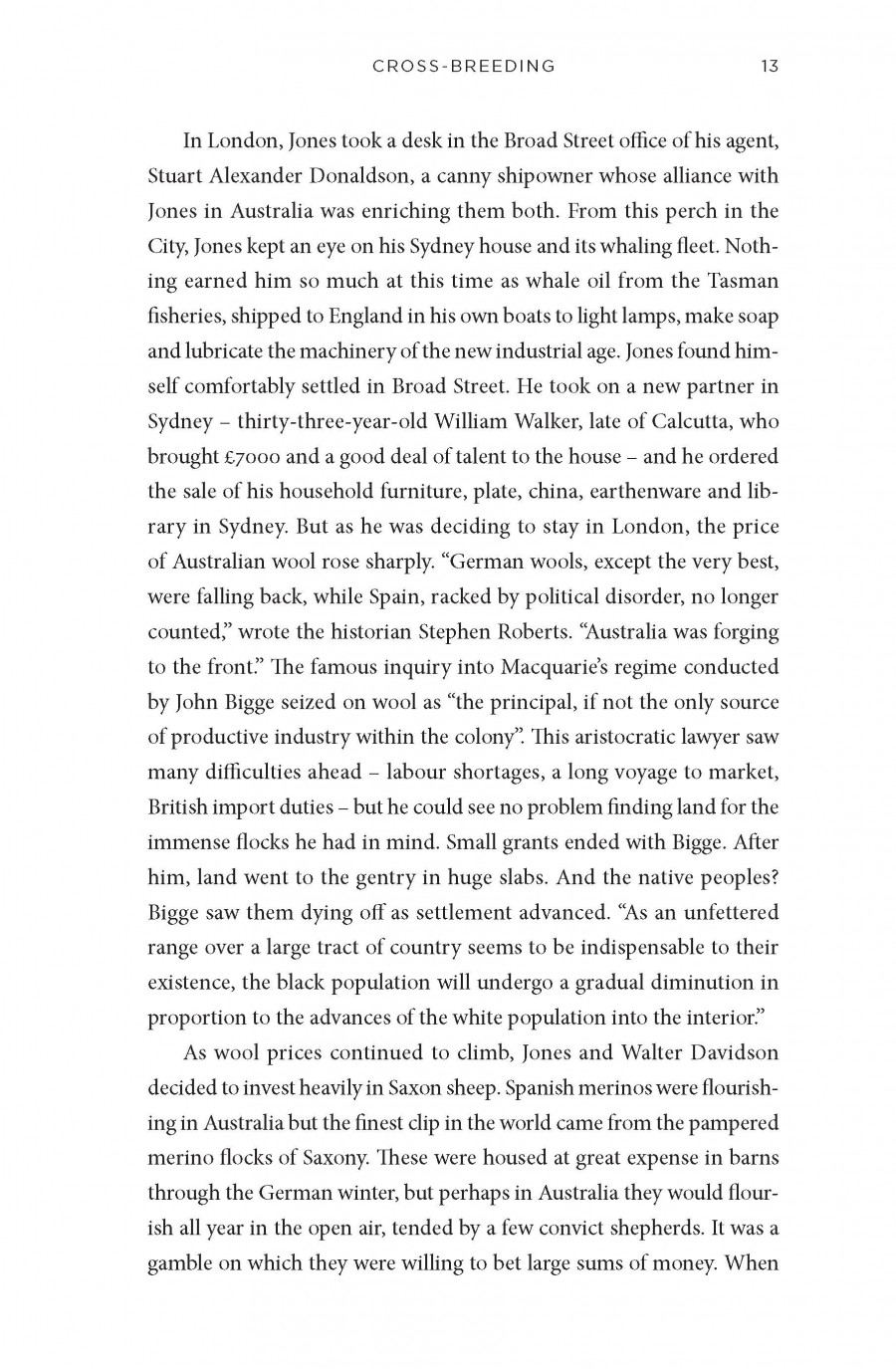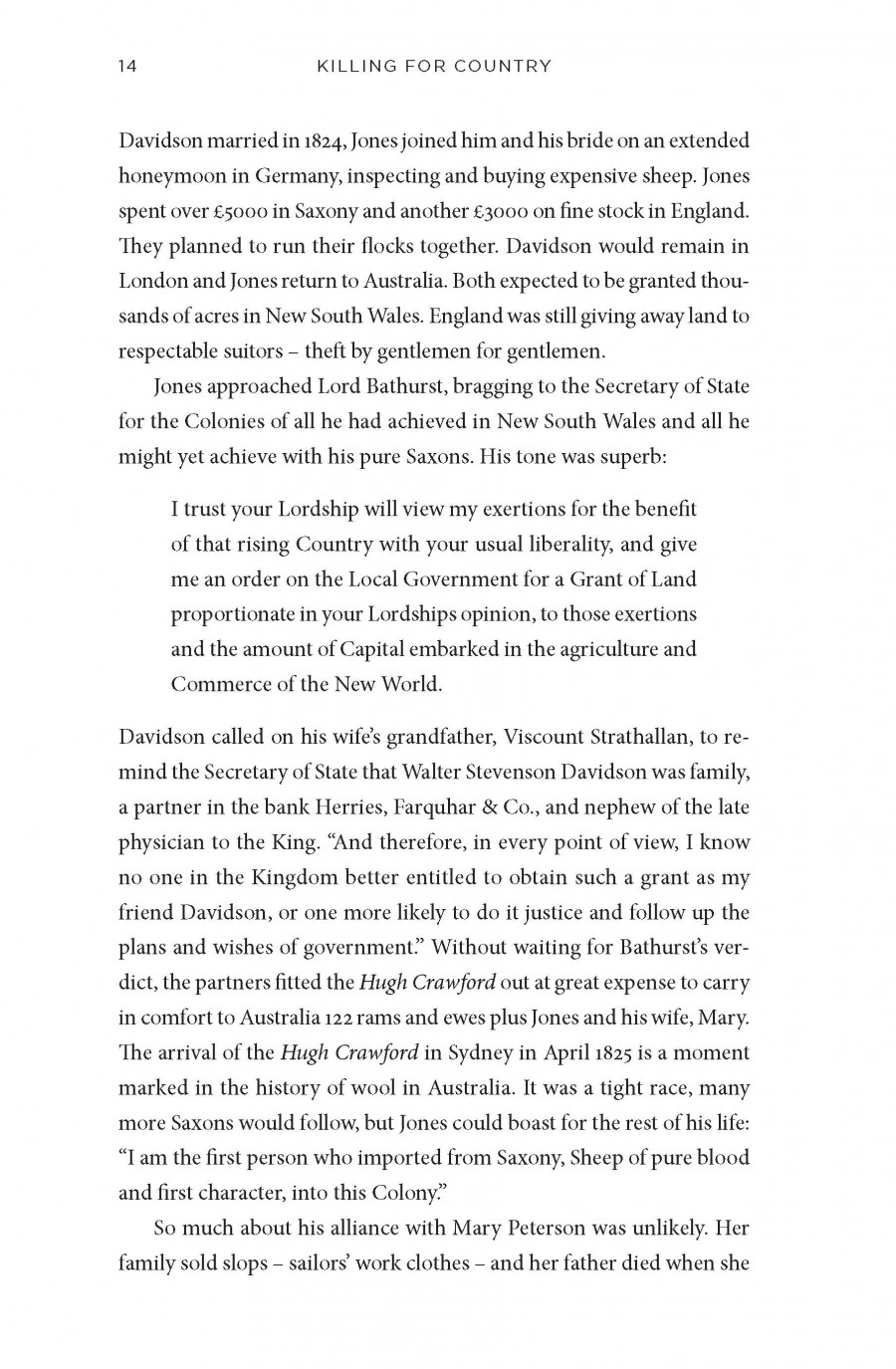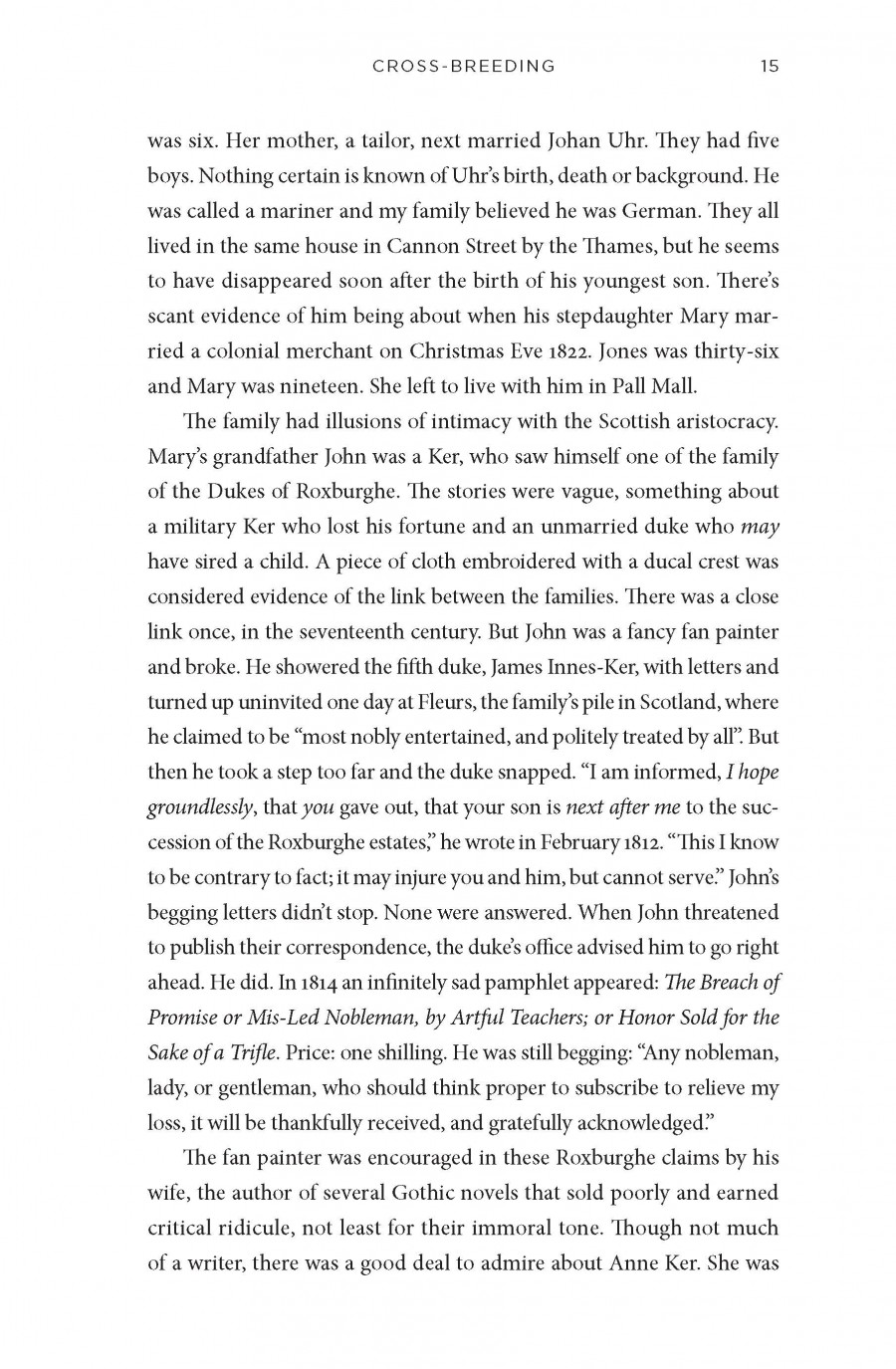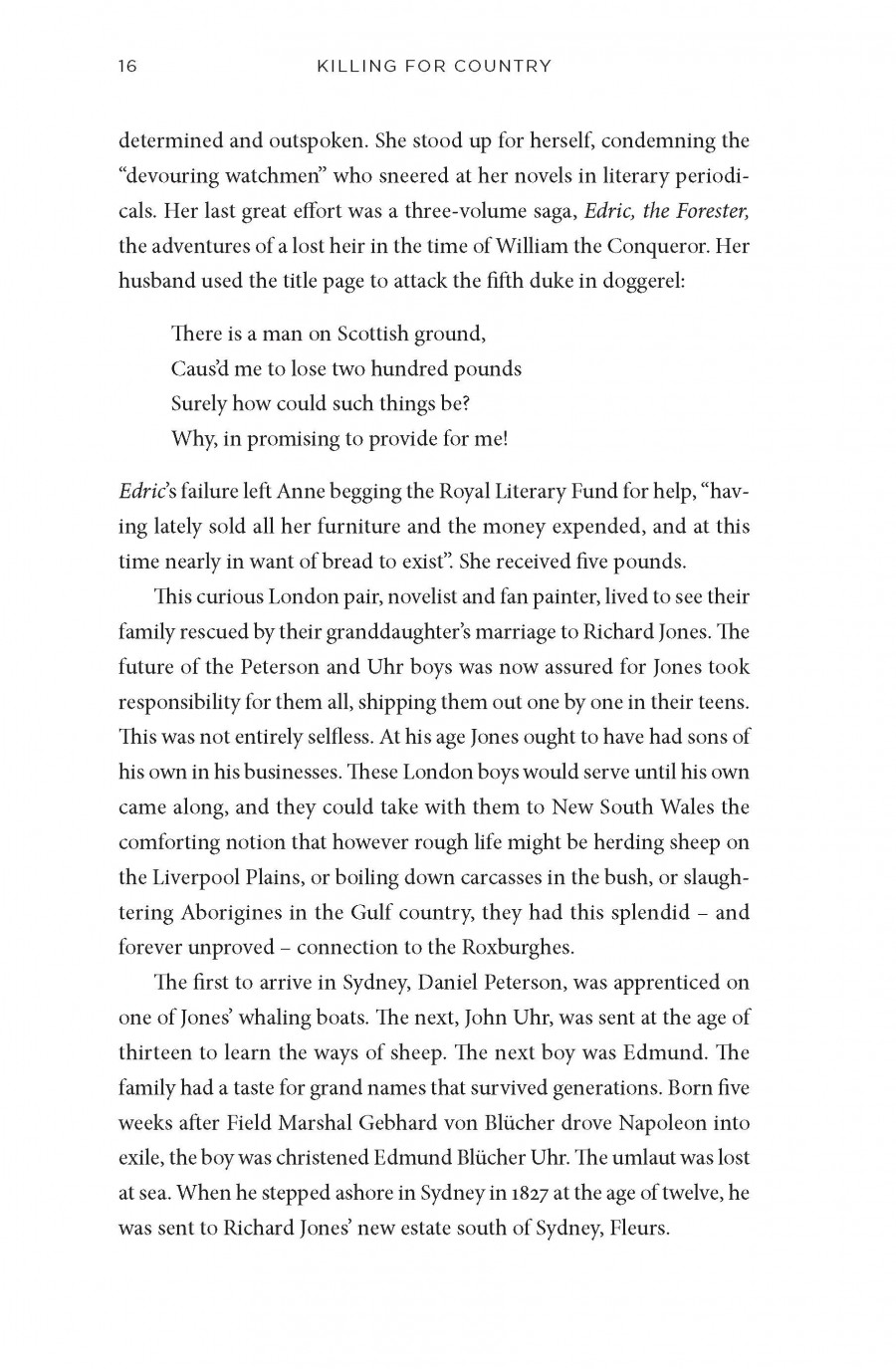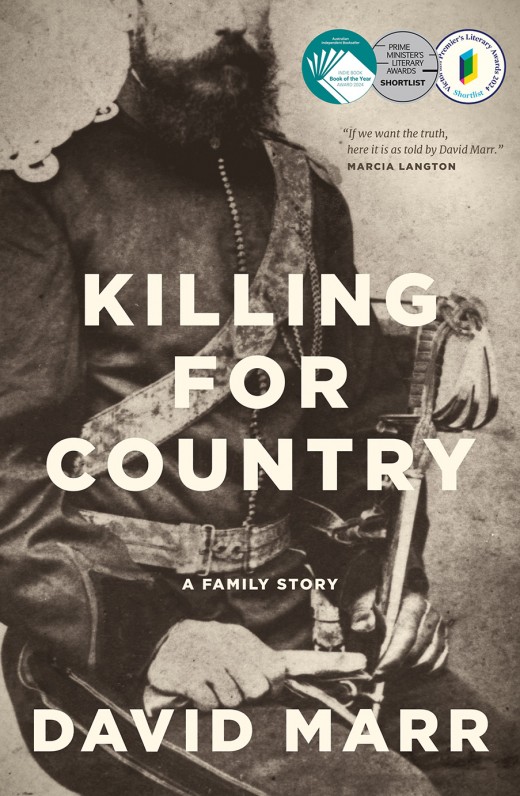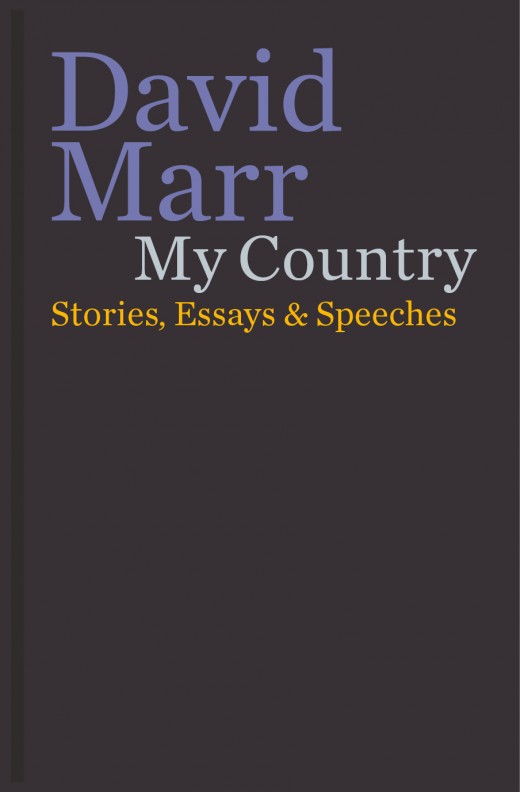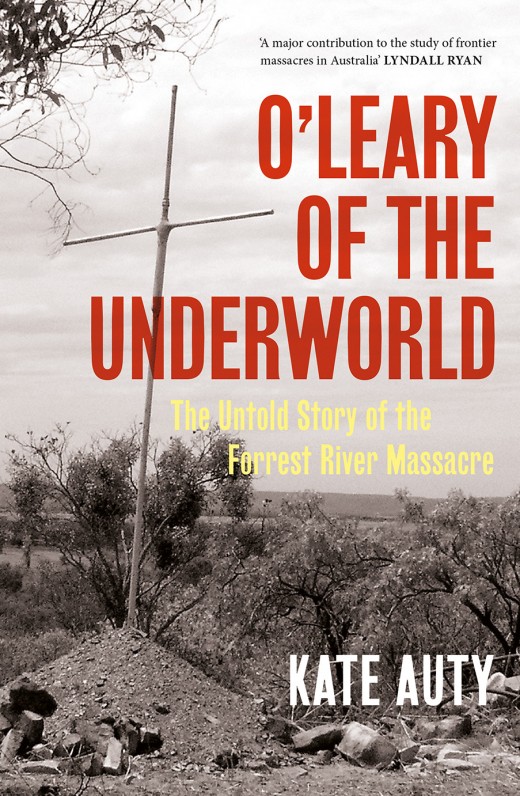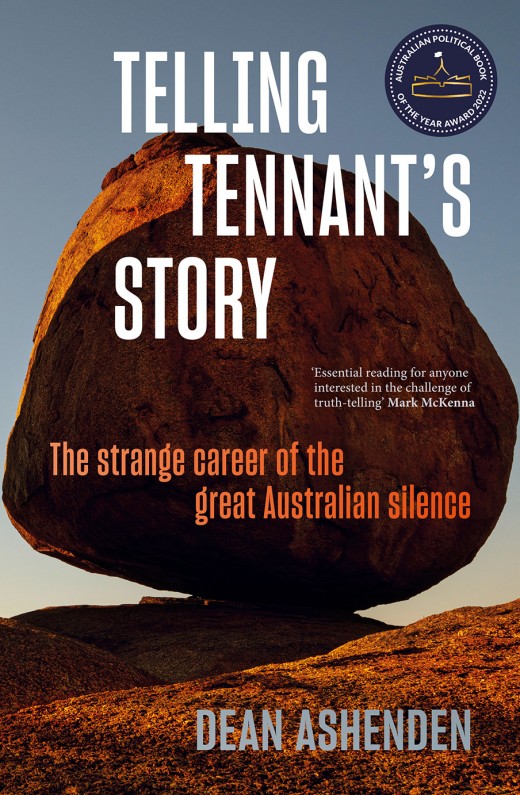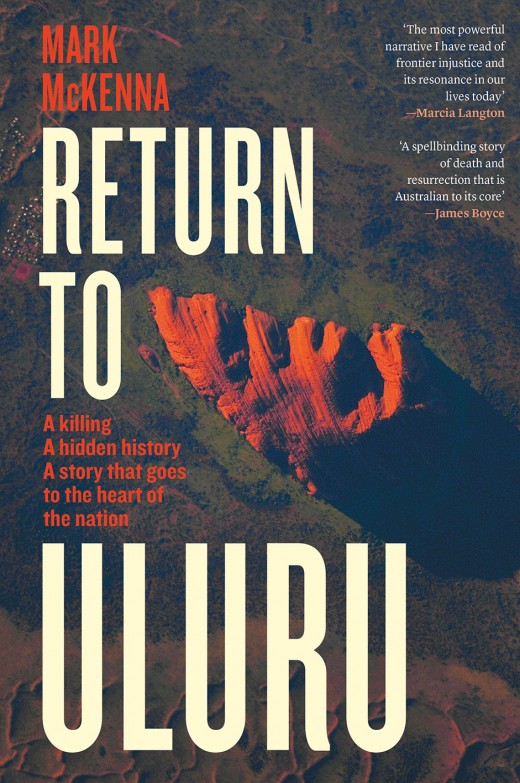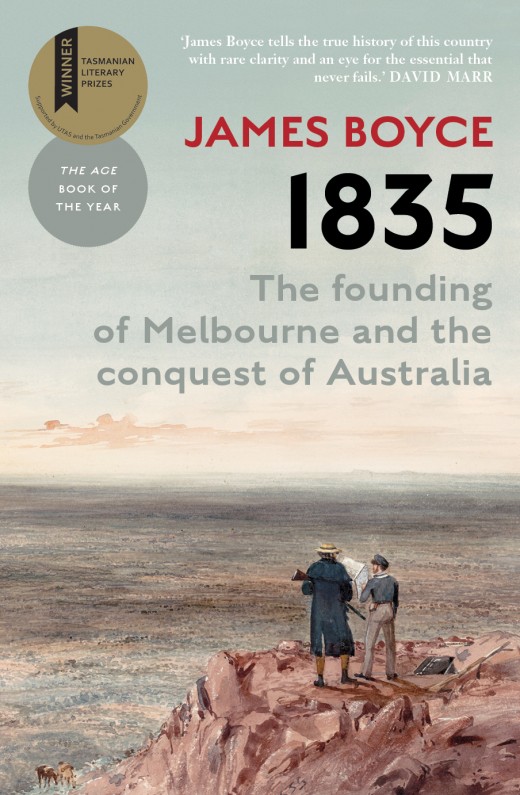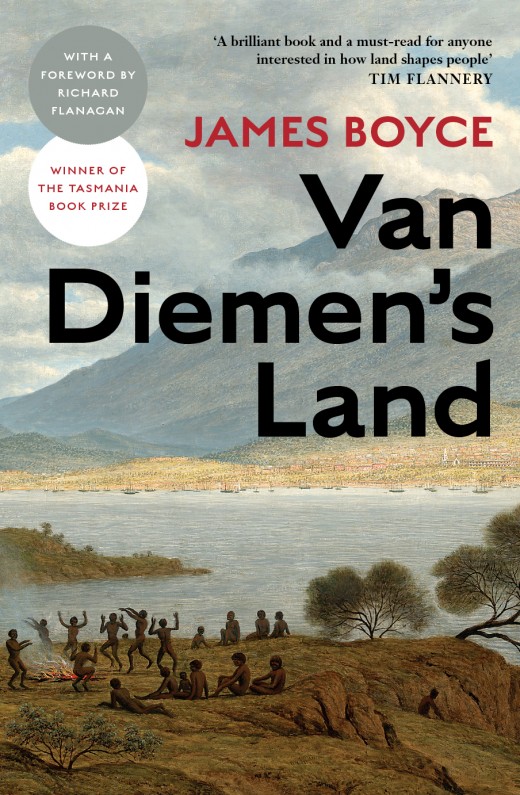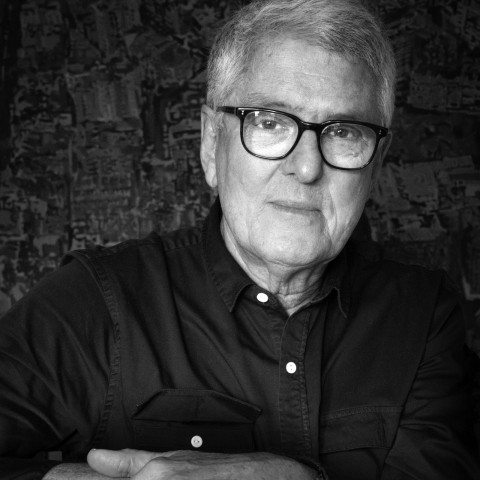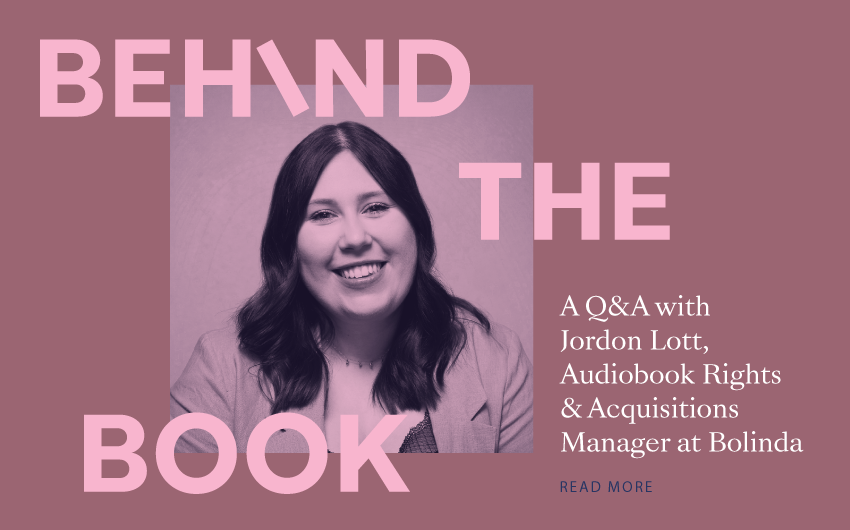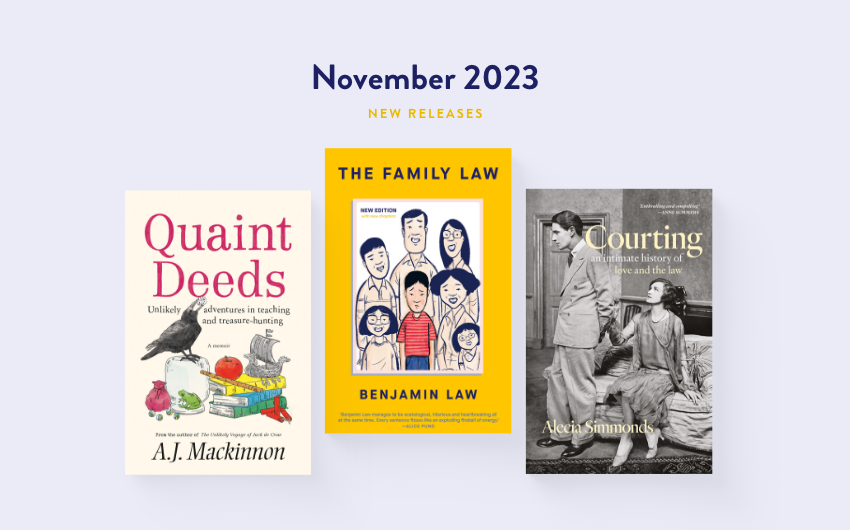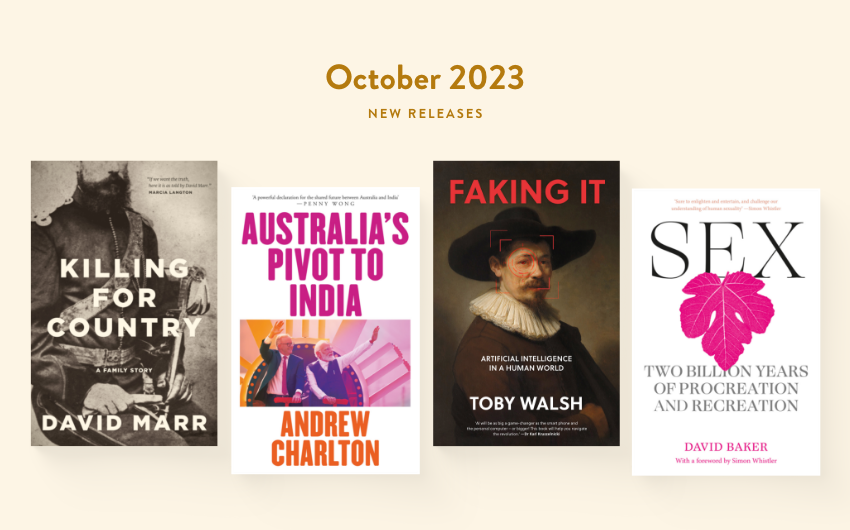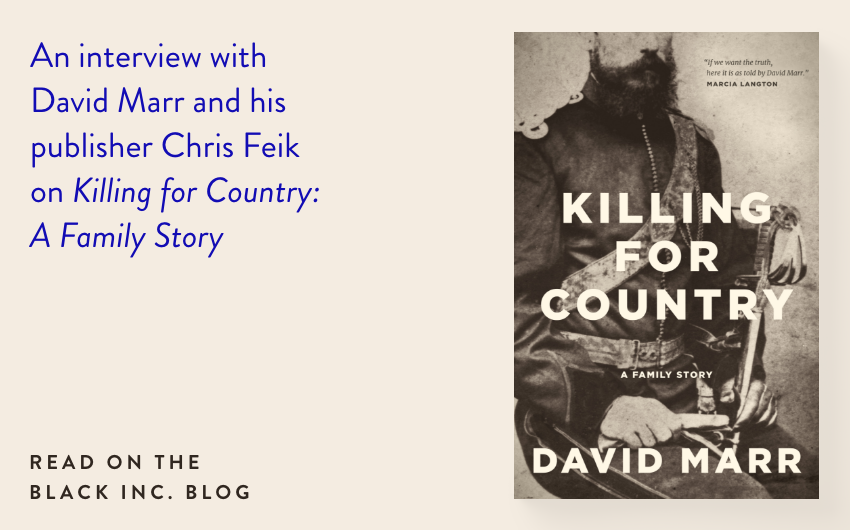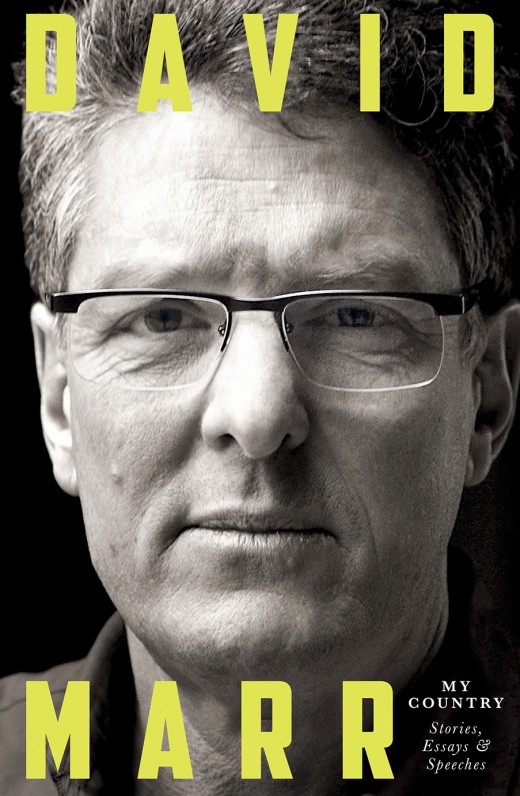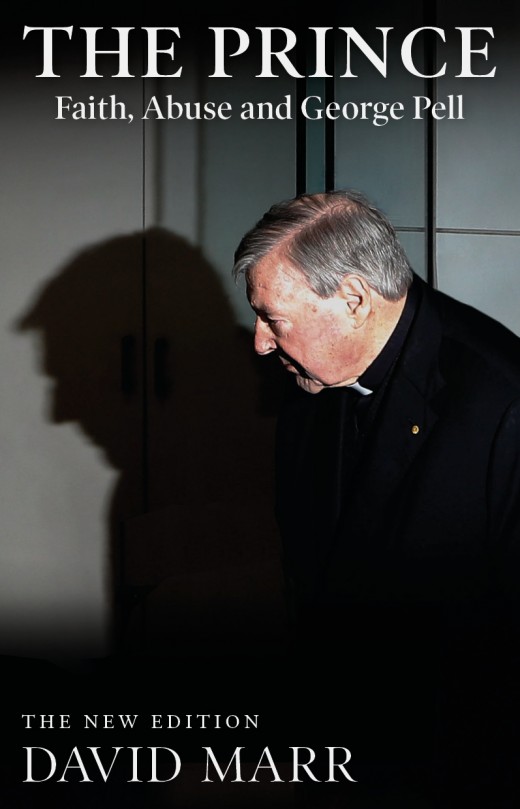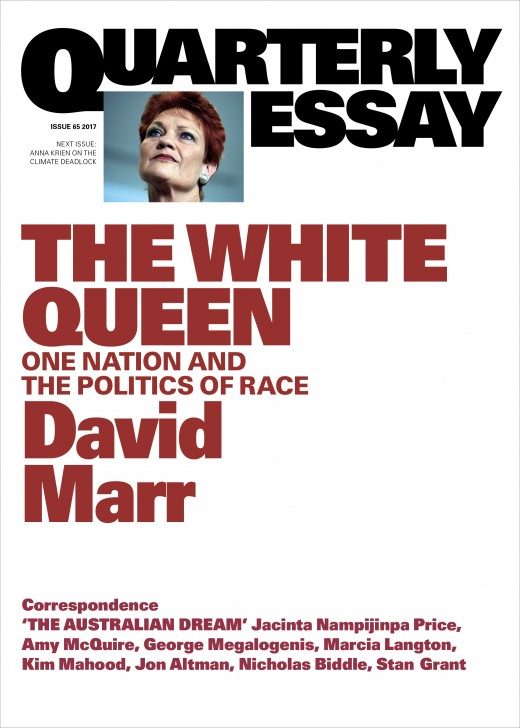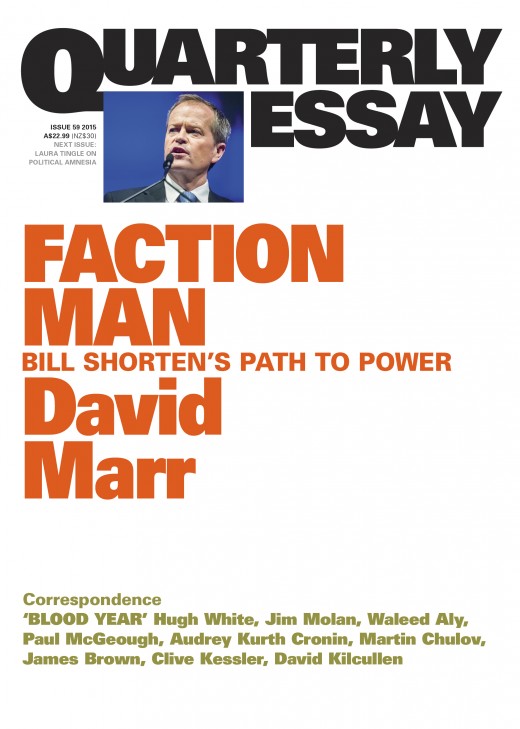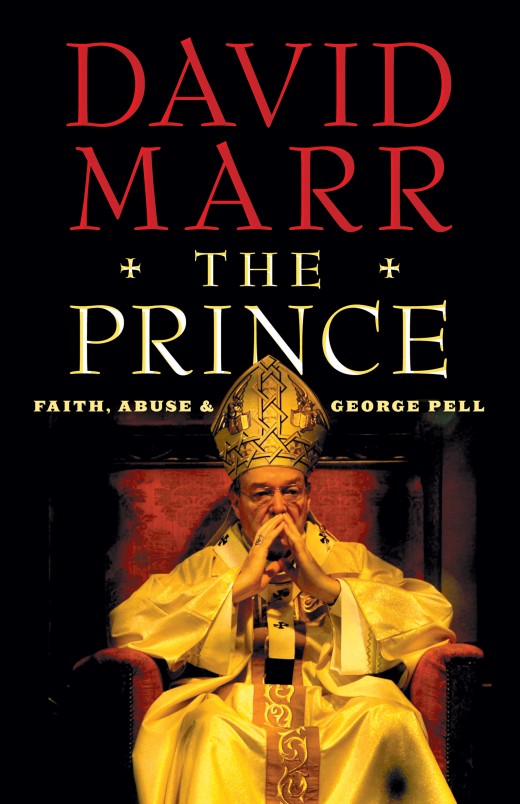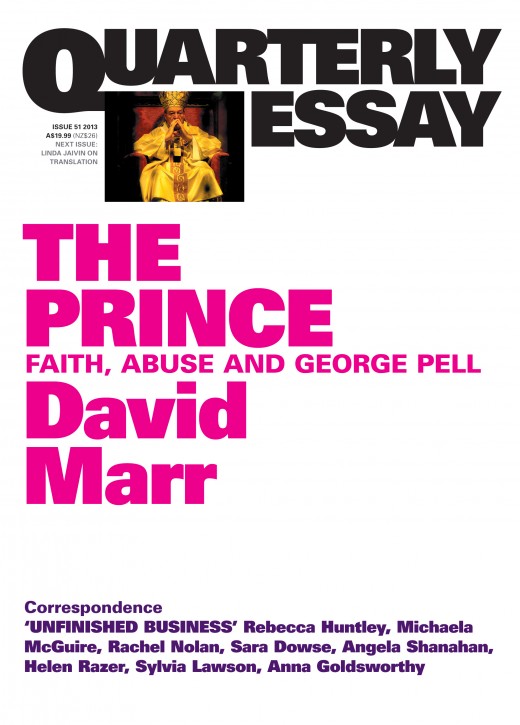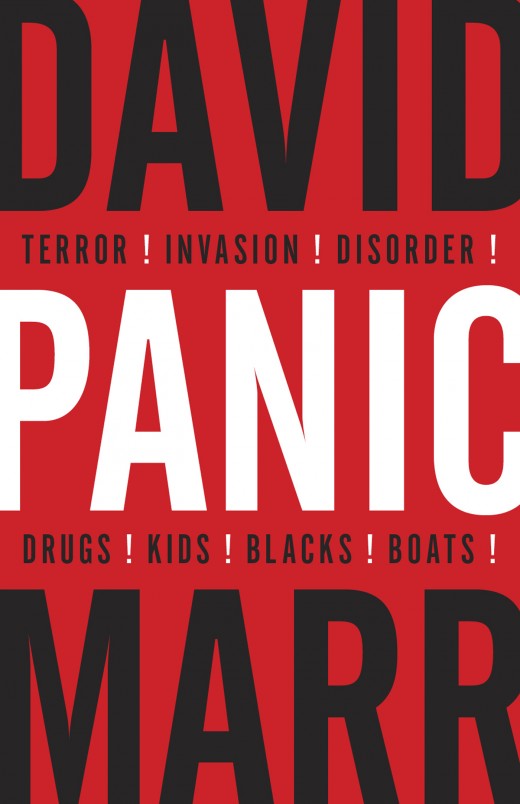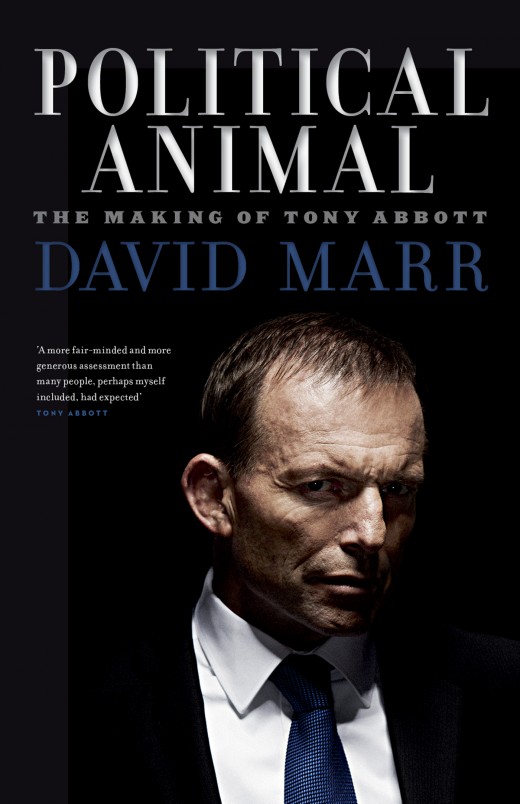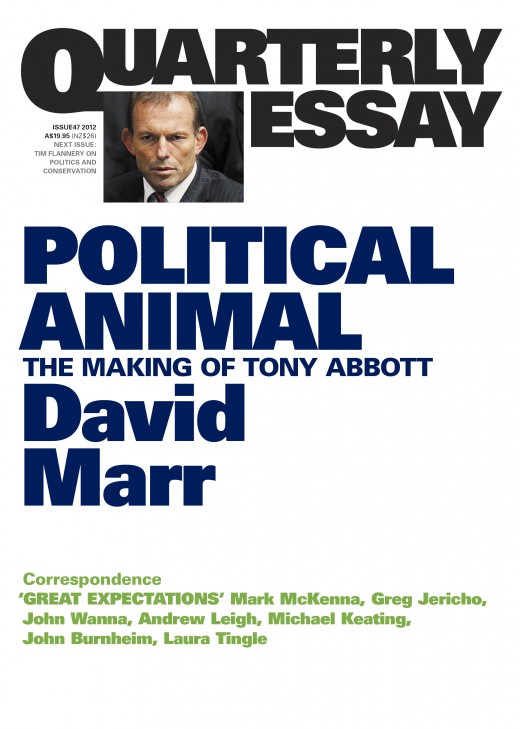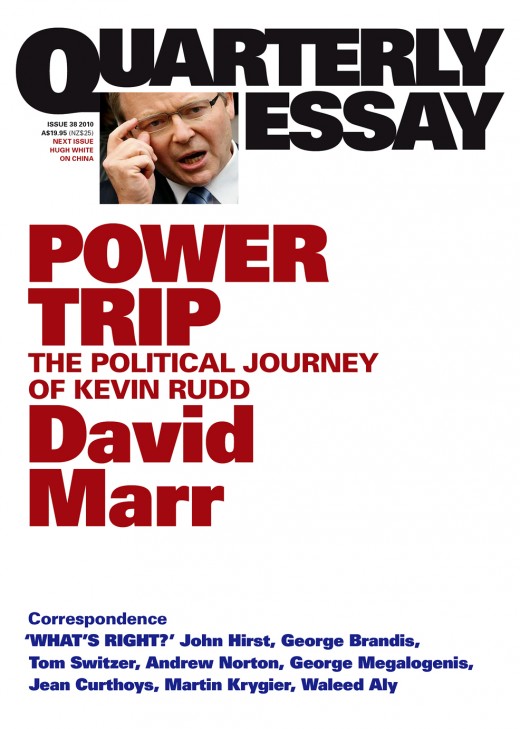‘If we want the truth, here it is as told by David Marr. He believed that he knew about Australia’s racism and violence. Then he went in search of his great-grandmother’s history. He found Sub-Inspector Reginald Uhr, “a professional killer of Aborigines,” and his brother D’arcy, also in “the massacre business.” This led him “step by step, into the history of the Native Police.” This force, along with the settlers and white police, murdered my ancestors over a fifty-year period in the Dawson Valley and the rangelands and plains of central Queensland, where the war left no one untouched. This book is more than a personal reckoning with Marr’s forebears and their crimes. It is an account of an Australian war fought here in our own country, with names, dates, crimes, body counts and the ghastly, remorseless views of the “settlers.” Thank you, David.’ —Marcia Langton
‘Killing for Country joins what is now a vast body of scholarship on Australia’s frontier history. But it stands out for its unflinching eye, its dogged research, and the quality and power of its writing.’ —Mark McKenna, Australian Book Review
‘It's a timely, vital story.’ —Jason Steger, The Age
‘Marr does a masterful job at holding the reader’s attention throughout Killing for Country … whenever the history and the horror threatens to become overwhelming, Marr is there to encapsulate it all with a single devastating sentence.’ —Joe Murray, Readings
‘[Killing for Country] is a book that shines more valuable light on the murderous behaviour of early European colonists in Australia’ —Peter Rodgers, Pearls and Irritations
‘The timing of this book is painfully exquisite and it demonstrates perfectly how little race politics have changed in Australia.’ —Lucy Clark, The Guardian
‘[Marr is] one of the country’s most accomplished non-fiction writers. I was sometimes reminded of Robert Hughes’ study of convict transportation, The Fatal Shore (1987), in the epic quality of this book ... Killing For Country is a timely exercise in truth-telling amid a disturbing resurgence of denialism.’ —Frank Bongiorno, The Age
‘Killing for Country ... stands out for its unflinching eye, its dogged research, and the quality and power of its writing.’ —Mark McKenna, Australian Book Review
‘This is an important book … in which one of Australia’s most respected authors has explored his own connection to the tragic occupation of this continent.’ —Peter Stanley, Honest History
‘Killing for Country … shines a light into the dark shameful corners of our collective national experience. What we will find when we look and listen won’t be pretty, but it is necessary to confront – not to be captives of history, but to learn from it and transcend it.’ —Julianne Schultz, The Conversation
‘Killing for Country: A Family Story, is another plank in truth telling’ —Michael Pascoe, The New Daily
‘A usual plaudit for a book is that a reader “couldn’t put it down”. But a plaudit for David Marr’s new book, Killing for Country, which documents his family’s history as professional killers of Aboriginal people in NSW and Queensland in the mid-1800s, is that it is one you have to keep putting down.’ —Laura Tingle, Australian Financial Review
‘Read David Marr’s excellent book Killing for Country and judge for yourself.’ —Niki Savva, The Sydney Morning Herald
‘The family truth telling … reminds us once again of the terrible cost of the colonisation of Australia’ —Henry Reynolds, Pearls and Irritations
‘…prodigiously researched and immaculately written, David Marr’s Killing for Country: A Family Story is surely one of the books of the year.’ —Richard King, The Australian
‘This is a story about Marr’s family darkness, yes. But it is also a book concerned with our collective shame. No one who reads his important and necessary account with an open mind could consider more decades of voicelessness an acceptable outcome for this nation’s First Peoples.’ —Geordie Williamson, The Saturday Paper
‘In Killing for Country Marr delivers a moving and well-researched regional history of the settlement of New South Wales and Queensland that deserves a wide audience.’ —Grant Hansen, Good Reading Magazine
‘This story would seem like a dark satire were it not for the fact that it is cruel and true. It would be too difficult to read were it not for Marr’s elegant, insistent style. This is a timely year for such a significant book.’ —Brenda Walker, Australian Book Review ‘Books of the Year 2023’
‘Killing For Country, is a reminder of [David Marr’s] skill and the depth of his moral authority … A powerful and important work of Australian history.’ —Qantas Magazine
‘Courageous and heartbreaking.’ —The Australian Women’s Weekly
‘Marr has written a richly detailed and deeply personal account of colonialism and family truth-telling. It is urgent and essential reading for all.’ —Readings ‘Best nonfiction of 2023’
‘Killing for Country could not be more necessary or more timely.’ —Larissa Behrendt, Inside Story
‘Aboriginal men were recruited or coerced into the Native Police – “young men in a broken world”; white settlers volunteered – officers doing “gentlemen’s work” – and among their number were members of David Marr’s own family. In Killing for Country, Marr confronts this history with rigour and integrity, marking an important national shift in which the privileged beneficiaries of violent dispossession no longer leave truth-telling to First Peoples. Marr’s solid research and powerfully engaging writing ensures that the early colonial conditions in which violence and lies could proliferate are all too easily recognisable today. This is an Australia we all need to understand.’ —Judges’ report, Victorian Premier’s Literary Awards 2024
‘…this is an impeccably researched, expansively detailed, clearly written work of colonial history’ —Geordie Williamson, The Saturday Paper ‘The 17 best books of 2023’
‘We may not have another chance to put an Indigenous Voice to Parliament in the Constitution but if there is going to be truth telling and reconciliation then reading Killing for Country can be a powerful step in that process for many Australians.’ —Andrew M Potts, Q News
‘As investigative journalist and biographer, David Marr is at his most masterful, as he probes the brutality of the Native Police … Enlightening and compelling.’ —Julia Baird, Toowoomba Chronicle
‘Marr gives voice in these pages to those who had none.’ —Geordie Williamson, The Weekend Australian ‘The best reads of 2023’
‘A magisterial book that will retain its value for years to come ... Killing for Country is a brave and bold book that records a story that has been rarely encountered by readers.’ —From the Judges’ comments, Indie Book Awards 2024
‘Our Australian history; it’s confronting, as the truth should be.’ —Kevin Spink, Australian Arts Review
‘A soul-searching book that has seen one of Australia's most renowned journalists come to grips with one of the darkest times in the country's history - and his family's intimate role in them.’ —Simon McCarthy, Newcastle Herald
‘David Marr’s intense and shocking account of just one white family’s history in Australia – and its horrifying impact on Indigenous Australia – is a book that brings home just how much we do not know about our own story.’ —Judges, 2024 Australian Political Book of the Year Award Shortlist

